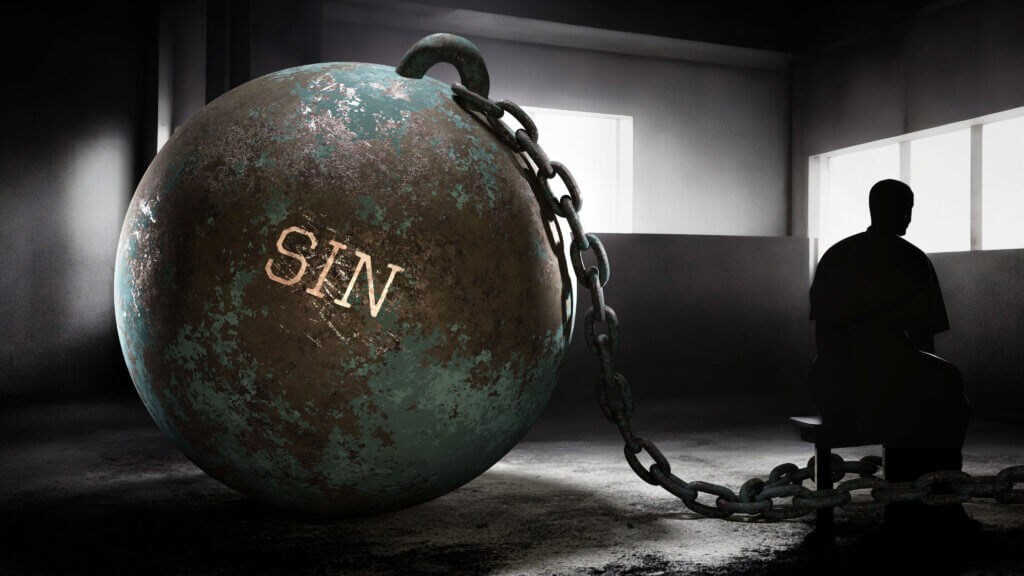Happy are those whose transgression is forgiven,
whose sin is covered.
Happy are those to whom the Lord imputes no iniquity,
and in whose spirit there is no deceit.
While I kept silence, my body wasted away
through my groaning all day long.
For day and night your hand was heavy upon me;
my strength was dried up as by the heat of summer.
Then I acknowledged my sin to you,
and I did not hide my iniquity;
I said, ‘I will confess my transgressions to the LORD’,
and you forgave the guilt of my sin.
Psalm 32:1-5
Have you noticed something missing in television news and the Internet? No one is talking about it. No one dares talk about it. It is like the proverbial elephant in the room taking up space, but no one mentions it. In our nation’s surge of lawlessness, corruption, threatening economic catastrophe, and near pandemic level perversion, no one is allowed to as much utter it: sin!
I watch the television news and feel like I am watching a panel of oncologists talking, none of whom are allowed to say the word “cancer”. Without accurate diagnosis of what plagues us, we come up with fake cures and snake oil treatment, such as more government spending, more social engineering, more education, and more laws. But, whatever happened to sin?This is the pressing question raised a generation ago by esteemed psychiatrist Karl Menninger in his best-selling book, “Whatever Happened to Sin?” Dr. Menninger lamented: “Where indeed, did sin go? What became of it? Is nothing now a sin?…But the word went away. It has almost disappeared – the word, along with the notion. Why? Doesn’t anyone sin anymore?” Menninger pointed out that the word “sin” had not been uttered by an American President since 1953 when Dwight Eisenhower used it in proclaiming a National Day of Prayer. In his proclamation, Eisenhower quoted President Lincoln: “It is the duty of nations as well as men to down their dependence upon the overruling power of God, to confess their sins and transgressions in humble sorrow.”
Will historians write of our nation that we officially ceased sinning a generation ago? Think about the latest political figure or celebrity caught red-handed in wrong doing. What do they do? Do they confess their sin, OR rather go into therapy and community service and pronounce themselves cured without any confession of wrong.
From the first pages to its last, the Bible identifies humanity’s critically central problem as sin. Yet, culture has cancelled sin in our thought and conversation, celebrating its disappearance, thinking ourselves now liberated and progressed.
Yet, I am seeing glimmers of hope, signs of encouragement, such as we saw earlier in the year at the “revival” at Asbury University in Kentucky. Dr. Bill Coppedge is a noted scholar on world missions and revival who wrote on what he witnessed happening at the Asbury revival:
“From the beginning, there has been a deep brokenness as people have come to the altar of Asbury’s Hughes auditorium, humbling themselves before God and others. Both university students and visitors to Asbury have knelt at the old wooden altar, confessing their sins, declaring their need for God.” (“The Asbury Revival and Our Hunger for God,” William Coppedge)
This is America’s hope for the future: confessing our sins and declaring our need for God. That would mean the ‘happiness’ of which David speaks in today’s psalm: “‘I will confess my transgressions to the LORD’, and you forgave the guilt of my sin.”
A fellow traveler,
Tim



